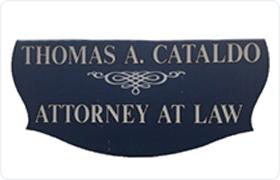Stirling White Collar Crime Lawyer, New Jersey
Sponsored Law Firm
-
 x
x

Click For More Info:
-
Thomas A. Cataldo, Attorney at Law
52 South Street Morristown, NJ 07960» view mapCriminal Defense Law Tip The Scales In Your Favor!
Thomas A. Cataldo, Attorney at Law has the legal experience you need at affordable rates that can't be beat.
800-834-4291
David Chase
Complex Litigation, International Intellectual Property, White Collar Crime, Consumer Bankruptcy
Status: In Good Standing
David Scott Chase
Complex Litigation, Intellectual Property, Federal Claims Court, White Collar Crime
Status: In Good Standing
 Thomas Cataldo Morristown, NJ
Thomas Cataldo Morristown, NJ Practice AreasExpertise
Practice AreasExpertise
